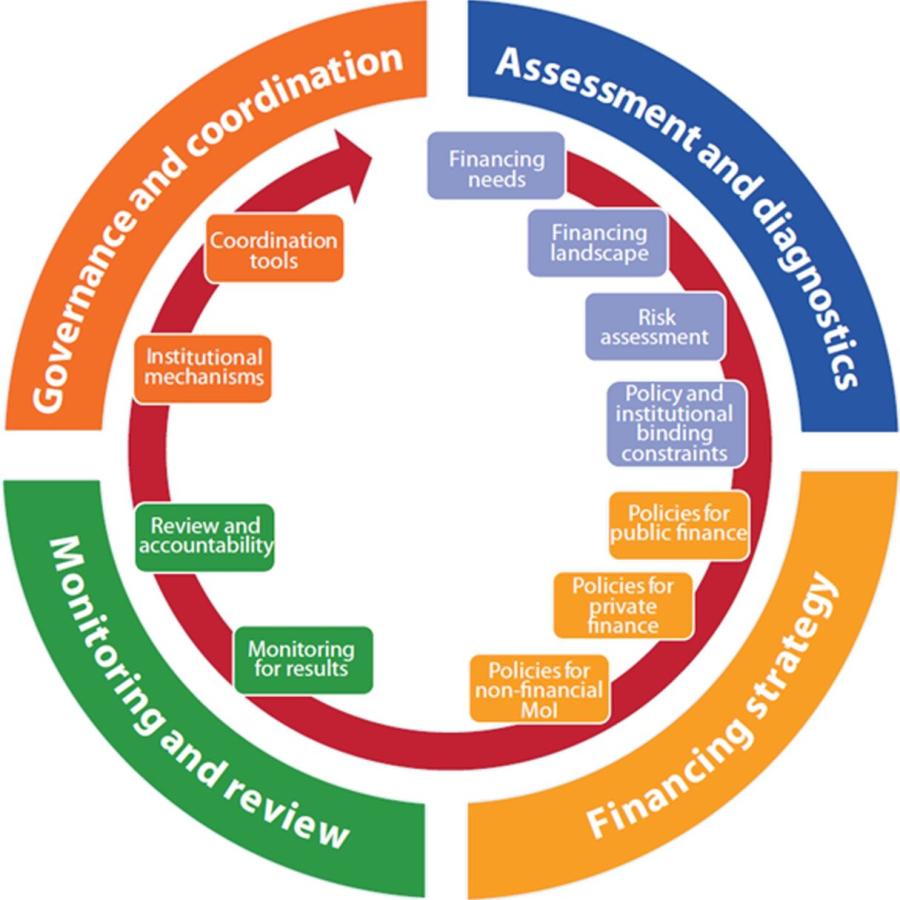Bangladesh's path to Sustainable Development and the role of the Integrated National Financing Framework

written by Gwyn Lewis, UN Resident Coordinator in Bangladesh
Bangladesh has come a long way in overcoming development challenges and making significant strides in poverty reduction, human development, and economic growth. As the country aims to transition out of the Least Developed Country (LDC) status by 2026 and achieve the Sustainable Development Goals (SDGs) by 2030, it faces the critical task of effectively and efficiently mobilizing diverse resources, both public and private. Innovative financing solutions that align with national priorities and ensure transparency and accountability are critical to achieve these important milestones for Bangladesh and this is where the Integrated National Financing Framework (INFF) comes in.
The INFF is a tool for governments to design policies and strategies to mobilise and manage resources for sustainable development and a strategic method of financing national development priorities in line with the 2030 Agenda. In Bangladesh, the endorsement of the Addis Ababa Action Agenda (AAAA) in 2015 and commitment to implementing an INFF as part of the 8th Five-Year Plan (8FYP) reinforced the country's commitment to coherent and integrated financing policies.
Developing and implementing an INFF is not an easy task. Bangladesh faces several key challenges in taking the SDG financing agenda forward, especially the COVID-19 pandemic has severely affected the health and economic sectors of the country, resulting in reduced revenues, increased expenditures, and widened fiscal deficits, which were further exacerbated by Ukraine war. The climate change impacts have also increased the vulnerability and resilience needs of the population, especially in the coastal areas. Moreover, the graduation from the LDC status would entail a loss of preferential market access and concessional financing, which could affect the export and investment prospects of the country.
Bangladesh needs to address the fiscal constraints, revenue mobilization gaps, debt sustainability risks, institutional capacities, governance issues, data availability, and coordination mechanisms that hamper the effective implementation of an INFF. Moreover, the country needs to enhance its engagement with the private sector, development partners, and other stakeholders to create an enabling environment for SDG financing.
To address these challenges and implement the INFF, four UN agencies (UNDP, ILO, UNCDF, and UN Women) with the support of the UN Resident Coordinator’s office in Bangladesh helped the government revise and update the development finance assessment, recalculate the SDG investment requirements, and produced roadmaps for different sustainable development goals including water and sanitation (SDG 6), renewable energy (SDG 7), and climate action (SDG 13). The INFF also provided recommendation for policy measures and reforms to mobilise public and private finance and facilitate dialogue and partnership among various counterparts.
Although the framework documents have been updated, challenges remain in strengthening budgeting and monitoring systems with the SDGs, enhancing domestic resource mobilisation, leveraging private sector financing, promoting public-private partnerships, fostering innovation and entrepreneurship, and enhancing access to finance for micro, small, and medium enterprises (MSMEs). Innovative financing mechanisms such as blended finance, green bonds, social impact bonds, and diaspora bonds can complement traditional sources of finance and address specific development challenges.

A strong national financing framework means Bangladesh can build a solid pathway toward the LDC graduation and the achievement of the SDGs. Bangladesh needs to take key steps to ensure effective and efficient use of available resources. The country needs to establish and operationalize a governance and oversight mechanism that can coordinate the INFF process across different ministries, agencies, and stakeholders. This structure should have high-level political buy-in and representatives from relevant sectors, including the private sector and development partners. Furthermore, implementing a robust monitoring and evaluation system is crucial to track the progress and impact of SDG financing policies and interventions at various levels, using disaggregated data. This system should also facilitate regular reporting on SDG financing to different stakeholders in user-friendly formats and platforms. In addition, multi-stakeholder dialogues on SDG financing should be regularized to raise awareness on the importance of SDG financing among citizens and policymakers.
The INFF is a continuous process that requires regular review and update. The United Nations in Bangladesh is committed to supporting the government in its endeavor to facilitate financing from all possible sources for the SDGs.







